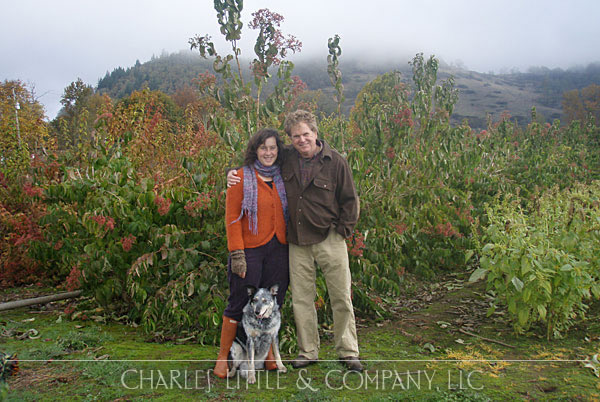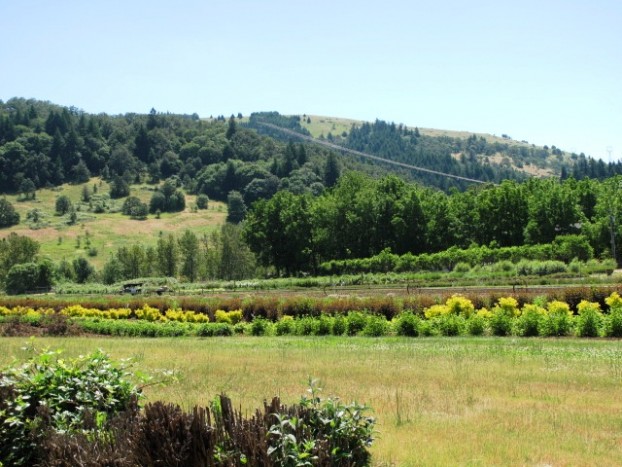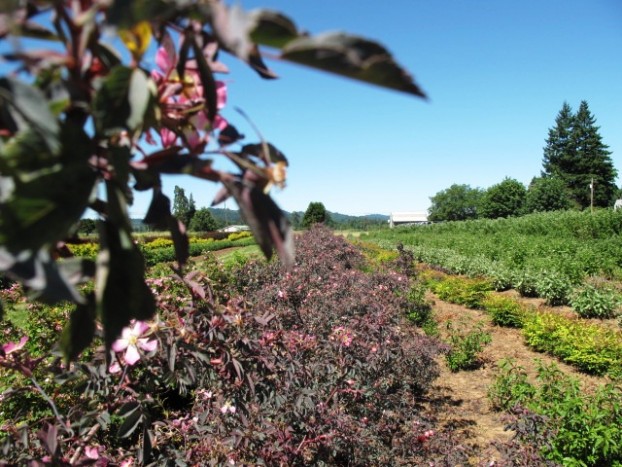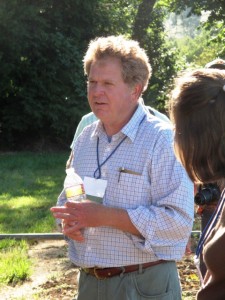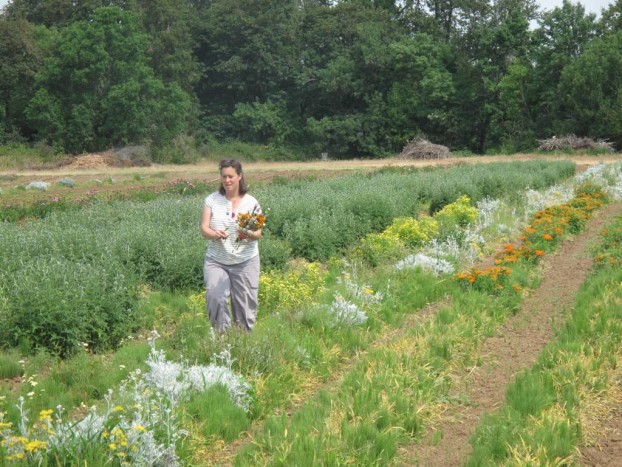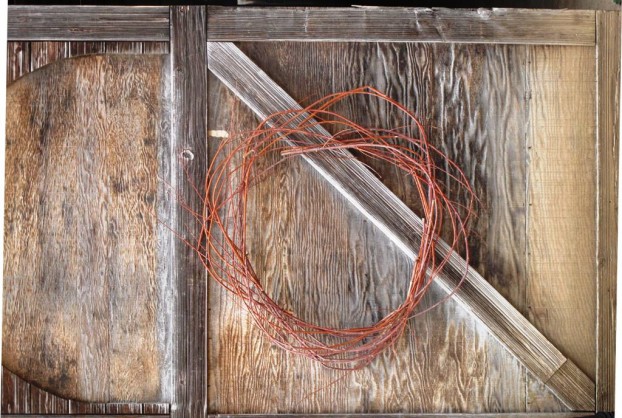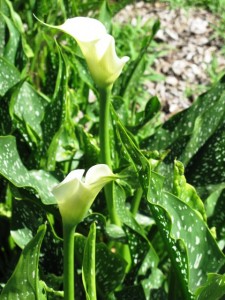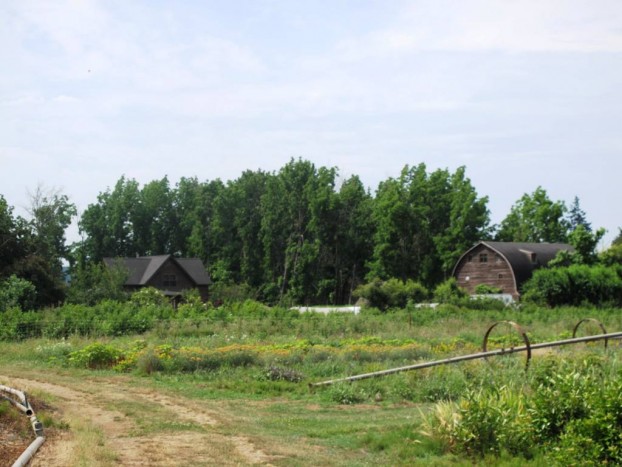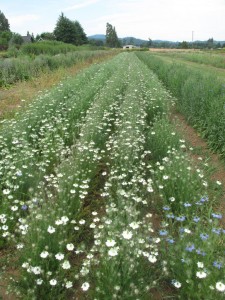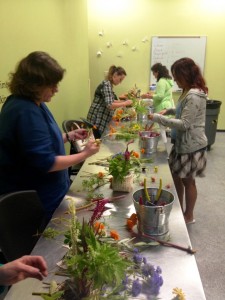Podcast: Play in new window | Download
Subscribe: Apple Podcasts | Podcast Index | RSS | More
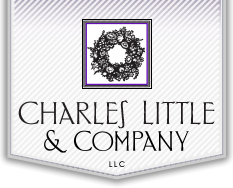 I first met today’s guest, Charles Little, on a sunny day in June 2010, at a gathering of about 60 growers and floral designers who came to the bucolic fields of Charles Little & Co.’s farm on Seavey Loop Road outside Eugene, Oregon.
I first met today’s guest, Charles Little, on a sunny day in June 2010, at a gathering of about 60 growers and floral designers who came to the bucolic fields of Charles Little & Co.’s farm on Seavey Loop Road outside Eugene, Oregon.
We were there for a regional meeting of the Association of Specialty Cut Flower Growers.
The full day of farming discussions, a fabulous barbecue and connecting with friends, new and old, ended with a conversation that led to the establishment of the Seattle Wholesale Growers Market the following year. My presence there also gave me a chance to witness the character and generosity of Charles and Bethany Little, our hosts. Later, I wrote these opening lines about the Charles Little & Co. farm, in a section of The 50 Mile Bouquet called “Grower Wisdom.”
“As farmland matures and evolves, so do those who steward it. Just ask Charles Little, who has been tending to ornamental crops in the verdant Willamette Valley since 1986. He describes the 40 abundant acres at the foot of Oregon’s Mount Pisgah, where he and his wife Bethany grow 250 varieties of fresh flowers, fillers, wildflowers, herbs, ornamental grains and grasses, seasonal berries, pods and branches, as a “horticultural paradise with its own thriving ecosystem.”
“I was one of those young men who wanted to create a hippy commune and be a farmer,” Charles says of his early years. “I’ve always wanted to live and make my living on the land.” More than 25 years after planting his first flower crops, he maintains that “farming is a lifestyle, a stewardship and commitment to the land and a generous consideration of all life around you, from the beneficial microorganisms and insects, to the birds and snakes.”
The farm at Charles Little & Co. consists of acres of the very best river-bottom soil along the Coast Fork of the Willamette River in Oregon.
Crops raised here include flowers and foliages of all kinds; ornamental herbs, grasses and grains, and unique sticks, pods and berries. In-season floral materials are available year round to wholesalers throughout the U.S. And they are in a word, excellent!
Charles and Bethany prefer to work in tandem with the seasons, rather than using heated greenhouses or hoop houses to jump-start or extend their harvest. “The southern Willamette Valley has a growing climate that’s hard to beat, so I cooperate with mother nature,” Charles says.
I visited Eugene on two occasions this summer, and I stopped at Charles Little & Co. farm both times. In late June, I joined a small farm tour and lunch hosted by Bethany.
She invited some floral customers and two employees who market Charles Little’s crops at the Portland Flower Market.
Bethany generously allowed a few of us to clip annuals, herbs, perennials and foliage to make a bouquet while there. It was days before I planned on launching American Flowers Week, so I was excited to create a red-white-and -blue-themed arrangement. Bethany is a gifted floral designer, so with her help, it turned out beautifull.
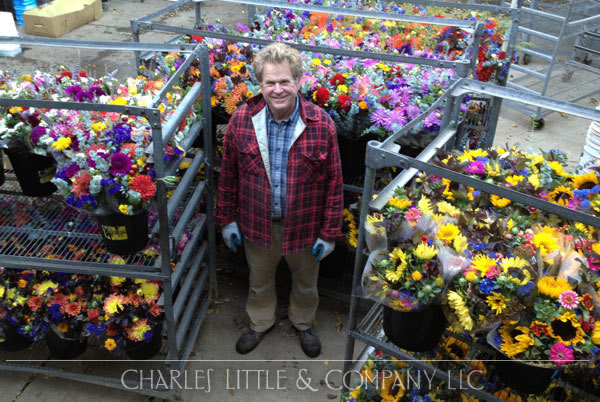
Charles Little with some of his favorite crops, ready to deliver to customers up and down the West Coast.
Charles wasn’t at the farm; he was off on an extended, once-in-a-lifetime fishing excursion. Bethany wanted me to get Charles in on the podcast interview. So I promised to record them when I knew I was going to come back through Eugene on my way to a photo shoot in Southern Oregon. But that time, Bethany was away, at a summer music festival on the Oregon coast. So I convinced Charles to let me turn on the recorder for what is a fantastic and longer-than-usual conversation.
What I realized, and what Charles and Bethany later confirmed, is that for farming couples, it’s almost impossible for both to travel or take a break from the farm TOGETHER. Someone has to feel the sheep and chickens; someone has to make sure the crops are harvested, processed, bunched or made into bouquets, loaded into buckets and delivered to the customer, right?
That’s what I witnessed during both of my visits. So today, you will hear from Charles. And I promise that sometime in the future, hopefully before the end of this year, we’ll bring Bethany on as a follow-up guest.
I know you will enjoy our conversation. It took place at the cozy kitchen table inside the hand-crafted farmhouse that’s just steps from the magnificent barn we discuss in our interview.
The flowers harvested from Charles Little & Co.’s fields satisfy demand for nearly every color, form and type of plant ingredient used by wedding, floral and event designers.
There’s always an eye-popping, seasonal assortment to choose from: flowering shrubs, colorful tree branches, evergreen boughs, and yes, a small percentage of dried flowers.
Since not all of you can visit the farm in person, as a special bonus, I’ve added a downloadable about them that appears in The 50 Mile Bouquet. Click here for the file: Grower Wisdom.
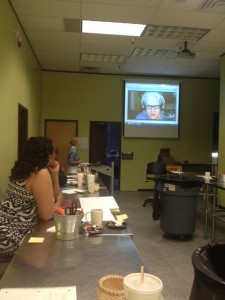
Through the power of technology, I “skype-lectured” for Morgan Anderson’s Austin CC “slow flowers” class.
Before I close, I wanted to give a shout-out and thank you to the fabulous students of Austin Community College’s floral design program who asked me to be a guest speaker (virtually- through the power of Skype) this week.
Their topic: Slow Flowers! The seminar was developed by instructor Morgan Anderson, a PhD candidate in floral design at Texas A&M University (yes, you heard me right) and the owner of The Flori.Culture, a design studio and Slowflowers.com member.
In addition to the Q&A with me, the students have been learning about sourcing local ingredients, specifically focusing on and using botanicals from Texas Specialty Cut Flowers, Pamela and Frank Arnosky’s famous flower farm. They are also evaluating Floral Soil and they promised to send photos of their designs for me to post in the future.
I applaud Morgan because she is leading the way to educate the next generation of floral designers in an entirely different model than most conventional floristry education programs. The enthusiasm I felt from this amazing group of students was so encouraging – and I wish them all great success in their career paths.
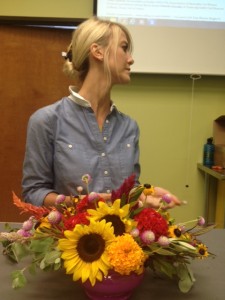
Morgan Anderson, The Flori.Culture, and Austin Community College design instructor demonstrates local Texas-grown flowers.
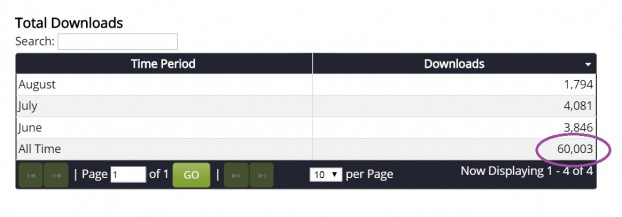 This week was a highlight in another way, too. We broke the record with our 60,000th podcast download. THANK YOU to each and every one of you for downloading, listening, commenting and sharing. It means so much.
This week was a highlight in another way, too. We broke the record with our 60,000th podcast download. THANK YOU to each and every one of you for downloading, listening, commenting and sharing. It means so much.
Until next week, you’re invited to join me in putting more American grown flowers on the table, one vase at a time. And If you like what you hear, please consider logging onto Itunes and posting a listener review.
The content and opinions expressed here are either mine alone or those of my guests alone, independent of any podcast sponsor or other person, company or organization.
The Slow Flowers Podcast is engineered and edited by Andrew Wheatley and Hannah Holtgeerts. Learn more about their work at shellandtree.com.









